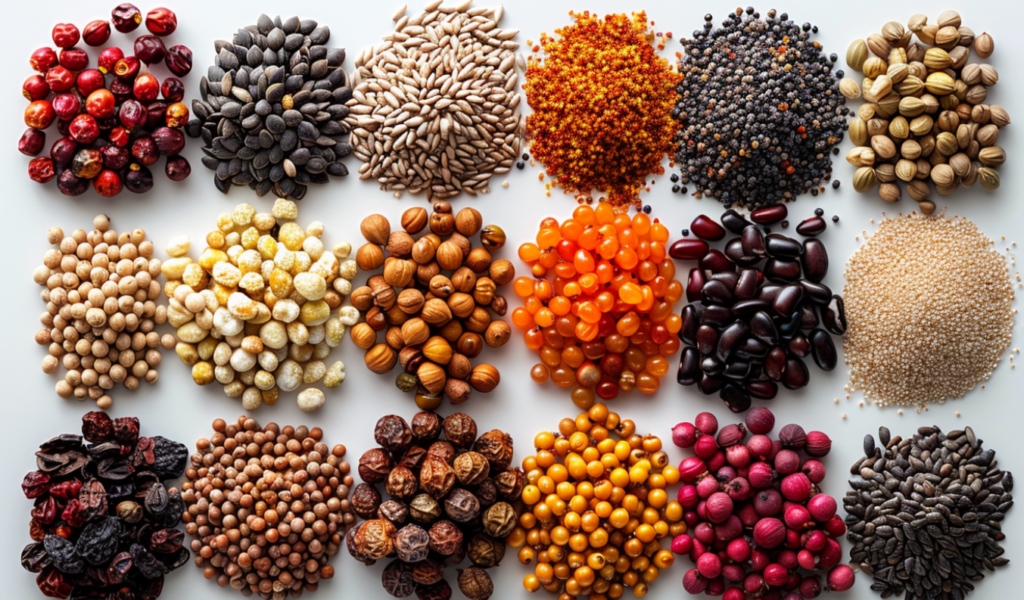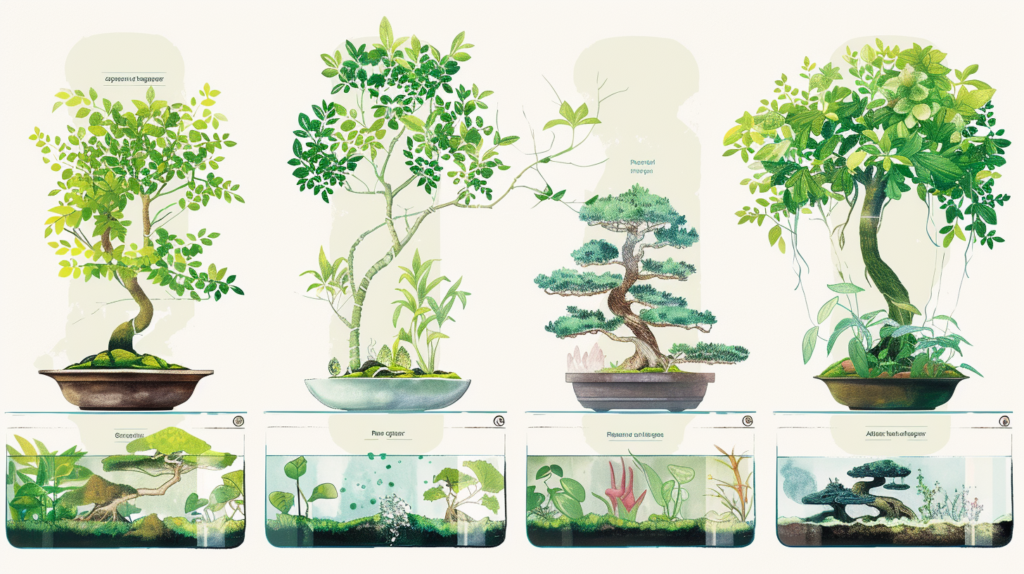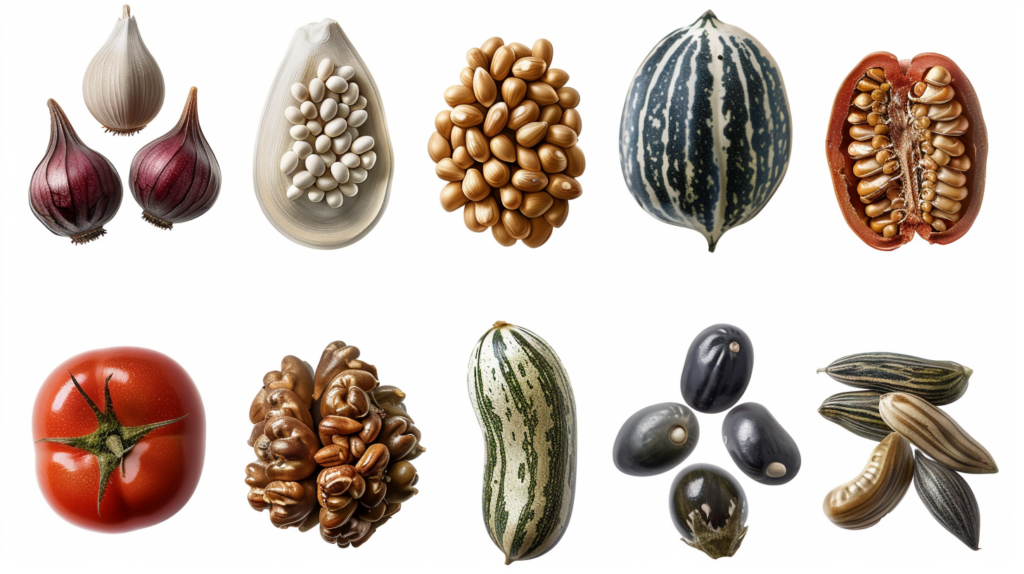Introduction
Hydroponics, an increasingly popular soilless plant cultivation method, necessitates careful seed selection for successful harvests. In hydroponic systems, plants depend on a nutrient solution for growth, making it crucial to choose seeds that are compatible with this unique environment. Selecting the right seeds for hydroponics can significantly enhance system performance and yield, providing an abundance of fresh, nutritious produce. Understanding the specific nutrient needs and growth patterns of hydroponic-friendly seeds is key to maximizing the potential of your hydroponic garden.
Overview of hydroponics and its growing popularity
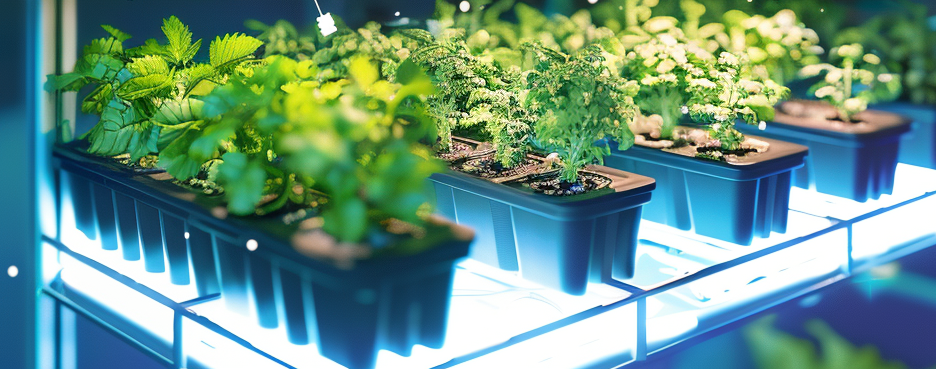
Hydroponics, the soilless cultivation of plants, has seen a significant rise in popularity, revolutionizing the way we grow crops. This method, which utilizes a nutrient-rich water solution, optimizes space, water, and resource usage. Amid increasing concerns over food security, environmental sustainability, and the potential of urban agriculture, hydroponics stands out as a promising alternative, attracting a diverse audience from gardeners and commercial growers to hobbyists. The benefits of hydroponic systems include enhanced yields, accelerated growth, and the capacity for year-round cultivation, independent of external climate or soil quality.
Moreover, hydroponics dramatically reduces water consumption compared to conventional farming, offering a solution for water-scarce regions. The controlled conditions of hydroponic setups also reduce the necessity for pesticides and herbicides, aligning with eco-friendly food production practices. The versatility and adaptability of hydroponics, applicable from expansive commercial ventures to compact residential projects, have cultivated a vibrant community of enthusiasts. This community’s shared insights, innovations, and experiences contribute to the widespread embrace of this advanced agricultural method.
Importance of choosing the right seeds for a successful hydroponic system
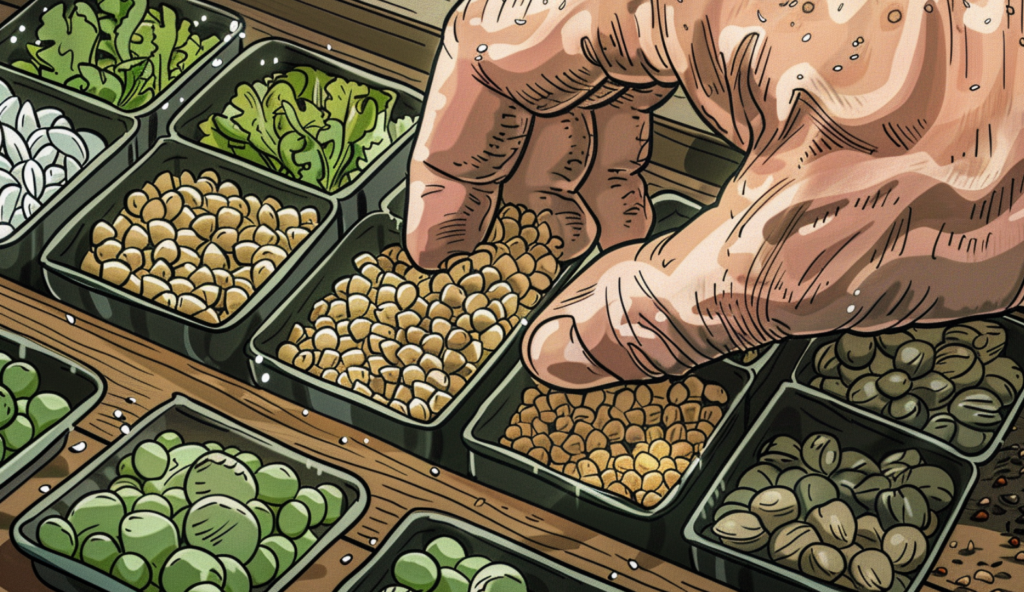
Selecting the appropriate seeds is critical for the prosperity of a hydroponic garden. In hydroponics, where the soil is replaced by a nutrient solution, the choice of seeds becomes even more significant. Seeds that are specifically engineered for hydroponic conditions are essential. These varieties are optimized to flourish without soil, making efficient use of the nutrients provided in the water solution.
Choosing unsuitable seeds can result in poor growth, nutrient imbalances, and potential crop failure. Plants not adapted to hydroponic environments may face challenges such as stunted growth, lower yields, and increased disease vulnerability. Through diligent selection of seeds designed for hydroponics, growers enhance their prospects for a fruitful and robust harvest, capitalizing on the efficient resource and space management offered by their hydroponic system.
Explanation of how soil and hydroponic seeds differ in their nutrient requirements
Advantages of using seeds specifically designed for hydroponics
Opting for seeds that are specifically developed for hydroponic cultivation brings numerous benefits compared to conventional soil-based seeds. These seeds are carefully bred to excel in soilless conditions, promoting superior growth and yield within hydroponic setups. A key benefit is their improved efficiency in nutrient uptake. Hydroponic-specific seeds are optimized to absorb and utilize nutrients from the solution more effectively, enhancing the plant’s growth and increasing yield potential.
Moreover, these seeds often germinate more quickly and grow faster, enabling shorter growth cycles and more frequent harvesting. Additionally, many varieties of hydroponic seeds are engineered to be more resistant to diseases and pests, minimizing the reliance on chemical pesticides and fostering a healthier, more sustainable growing environment. Utilizing seeds designed for hydroponics allows growers to maximize the efficiency and productivity of their hydroponic systems, leading to consistent, high-quality crops.
Different types of hydroponic systems and their compatibility with various seed types
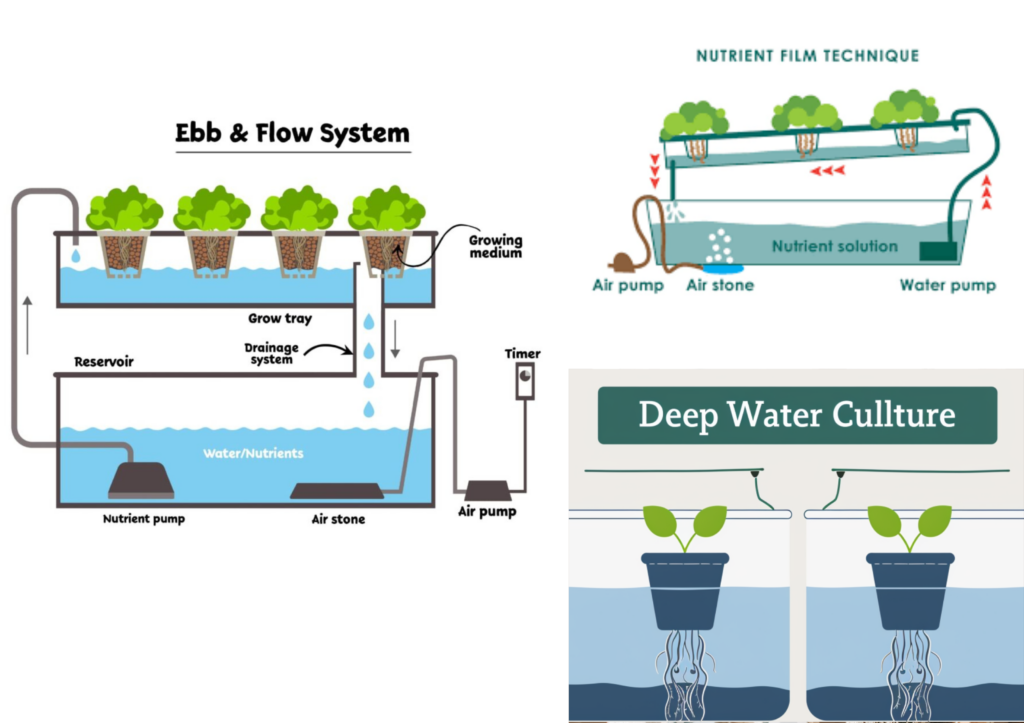
Hydroponic gardening encompasses a variety of systems, each tailored to support different plant types effectively. Recognizing the specific requirements of each system is essential for seed selection and optimizing plant growth.
The Deep Water Culture (DWC) system immerses plant roots directly in a nutrient solution, making it an excellent choice for leafy greens, herbs, and certain fruit-bearing plants like tomatoes and peppers. Seeds that develop strong root systems and have high nutrient uptake rates are particularly well-suited to DWC environments.
The Nutrient Film Technique (NFT) circulates a thin layer of nutrient solution over the roots, ideal for plants with less extensive root systems, including lettuce, strawberries, and various herbs. Seeds that benefit from continuous nutrient and moisture exposure perform well in NFT setups.
Ebb and Flow systems, which alternately flood and drain the grow area with nutrient solution, offer flexibility to support a broad spectrum of seeds, from vegetables to small fruits and ornamentals, provided they can adapt to the fluctuating moisture levels. Aeroponics exposes plant roots to a nutrient-rich mist, favoring seeds that develop elaborate root networks, such as tomatoes, peppers, and specific herbs, by ensuring optimal nutrient absorption and aeration.
By aligning seed selection with the characteristics of these hydroponic systems, growers can establish a conducive growth environment, paving the way for successful and abundant harvests.
Factors to consider when selecting seeds, such as growth rate and nutrient needs
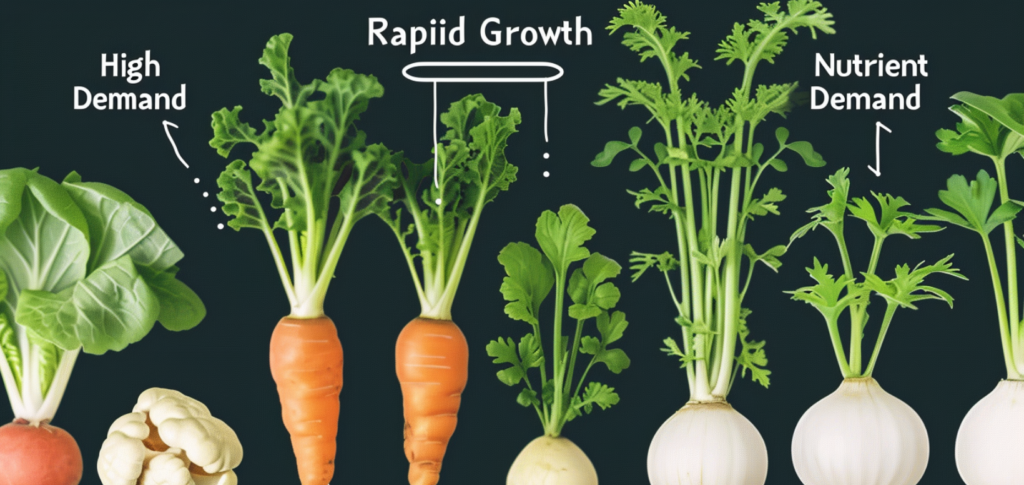
Choosing the right seeds for hydroponic cultivation involves careful consideration of growth rates and nutrient requirements to achieve the best results. The growth rate is a pivotal factor; rapid-growing species can lead to more frequent harvests and enhance the efficiency of the hydroponic system. In contrast, slower-growing plants might not utilize the system’s full potential.
Nutrient needs are equally critical. Plants vary in their nutrient consumption, and it’s important to match seed selection with the nutrient composition of the hydroponic solution. High-demand plants might necessitate regular solution replenishment or adjustments, while those with modest nutrient needs can prosper in a consistent nutrient regime. The suitability of seeds for the specific hydroponic system in use should also be taken into account, as certain systems may be more conducive to particular plant types or growth patterns.
By assessing these factors with diligence, hydroponic gardeners can select seeds that are compatible with their system, enhancing the likelihood of a thriving and productive garden.
Benefits of choosing fast-growing seeds for efficient hydroponic production
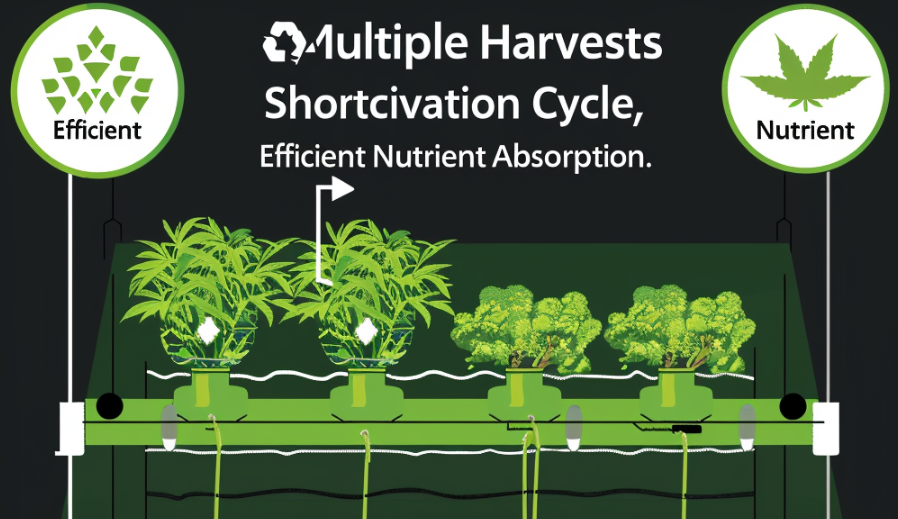
Selecting fast-growing seeds for hydroponic systems brings several key advantages that enhance production efficiency. A foremost benefit is the opportunity for multiple harvests in a reduced period, leveraging the system to achieve its highest yield potential and boost productivity. These varieties typically reach maturity quicker, shortening the cultivation cycle and facilitating faster crop rotation. This aspect is especially beneficial for commercial growers aiming to optimize output while minimizing idle times, crucial for maintaining profitability.
Moreover, seeds that exhibit rapid growth are often developed with hydroponic cultivation in mind, ensuring they are well-adapted to absorb nutrients efficiently and thrive in soilless conditions. Opting for these seeds allows growers to fully exploit the benefits of hydroponics, including precise nutrient management and effective use of resources. Incorporating fast-growing seeds into hydroponic gardening strategies significantly contributes to increased efficiency, making it a compelling option for both commercial growers and enthusiasts.
Examples of high-yielding seed varieties suitable for hydroponics
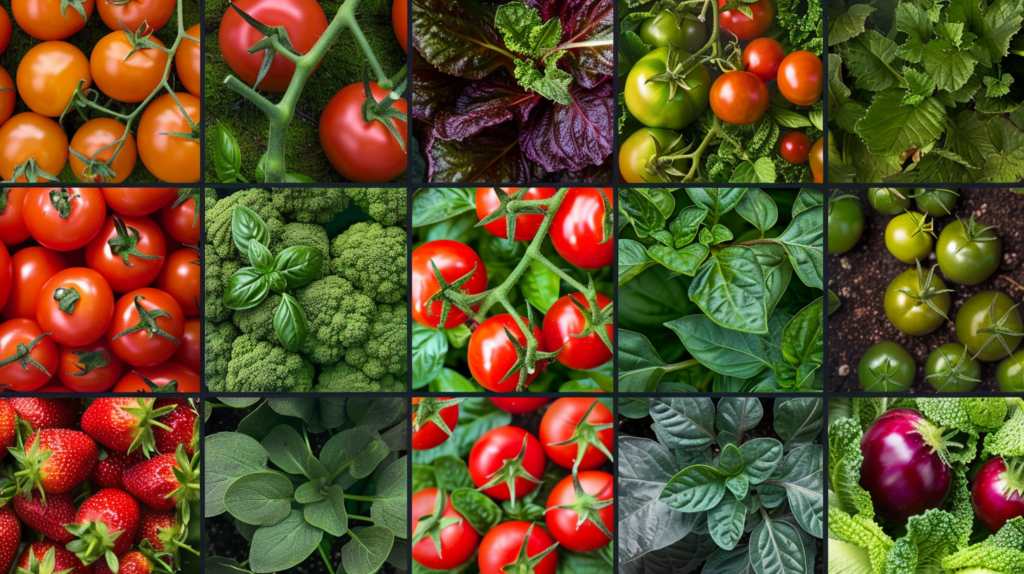
Several high-yielding seed varieties stand out for their suitability in hydroponic setups, promising to enhance production capabilities. The Cherry Bomb tomato is celebrated for its abundant fruiting and compact growth, fitting perfectly within hydroponic confines. The Gypsy hybrid pepper is another stellar choice, offering plentiful, tasty peppers alongside notable disease resistance, making it a robust option for hydroponic cultivation.
For growers focusing on leafy greens, the Salanova lettuce series is a favorite, praised for its quick growth, substantial yields, and prolonged harvesting period. Bright Lights Swiss chard provides a continuous bounty of colorful, nutrient-rich greens, adding versatility to hydroponic gardens. In the herb category, Dukat basil stands out for its aromatic leaves and generous yields, while Cilantro Leisure is favored for its continuous production of flavorful leaves, ideal for culinary use. Strawberry enthusiasts will find the San Andreas and Albion varieties to be superior choices for hydroponic systems, thanks to their excellent fruit quality and steady yields across the season.
It’s crucial to recognize that seed performance may vary with the specifics of the hydroponic setup and environmental conditions. Engaging in thorough research and seeking advice from seasoned growers or seed suppliers can assist in making the most suitable choices for your hydroponic garden’s needs and goals.
Importance of disease-resistant seeds in hydroponic systems
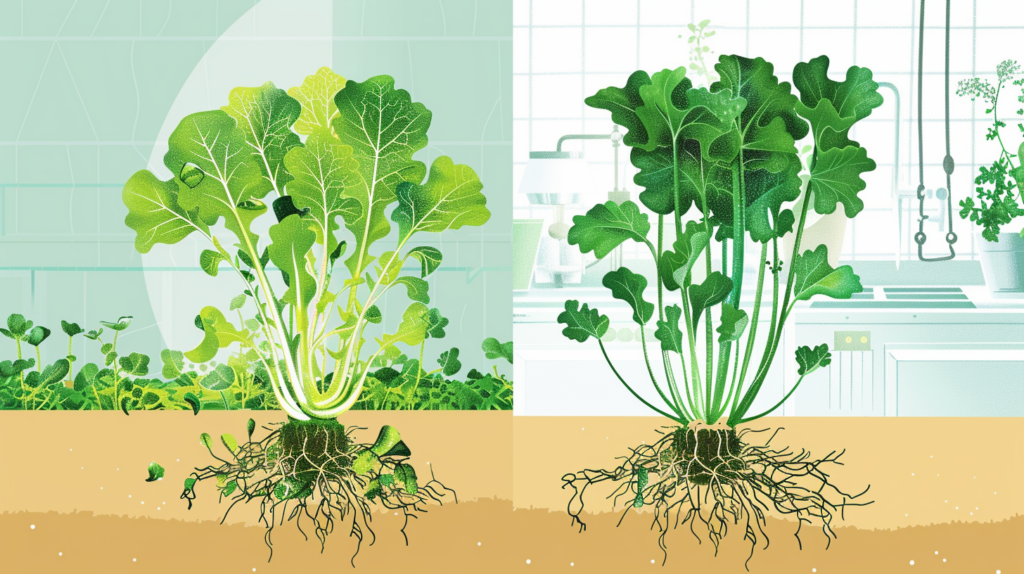
In hydroponic systems, the selection of disease-resistant seeds is crucial. Hydroponic environments, unlike their soil-based counterparts, do not benefit from the presence of beneficial microorganisms that typically help suppress plant diseases. This absence leaves hydroponically grown plants more vulnerable to pathogens, emphasizing the need for seeds with built-in disease resistance for successful cultivation. Seeds with disease resistance have been selectively bred to combat common plant afflictions, including fungal, bacterial, and viral diseases.
They carry genetic characteristics that bolster their defense against such pathogens, thereby decreasing the likelihood of crop loss and lessening the dependence on chemical treatments. Utilizing disease-resistant seed varieties in hydroponic gardens greatly diminishes the chances of disease incidence, leading to healthier crops and more reliable yields. This approach not only enhances productivity but also aligns with sustainable and eco-conscious farming practices by reducing the need for potent pesticides and fungicides.
Adaptability of seeds to different environmental conditions in hydroponics
The ability of seeds to adapt to varying environmental conditions is a key consideration in hydroponic gardening. Despite the controlled nature of hydroponic systems, environmental variables like temperature, humidity, and light levels can still fluctuate, impacting plant growth. Seeds that are inherently resilient and capable of adjusting to these changes are more likely to prosper. Certain varieties are specifically bred for their robustness, enabling them to sustain steady growth and yield even under minor environmental shifts within the hydroponic environment, thus reducing the likelihood of growth inhibition or diminished production.
Moreover, some seeds are tailored for specific hydroponic setups or climatic conditions, with certain types thriving in cooler temperatures and others in warmer ones. Selecting seeds that align with the environmental conditions of your hydroponic system is crucial for maximizing plant development and achieving a fruitful harvest. Emphasizing seed adaptability when planning your hydroponic garden can lead to a more durable and productive system, adept at navigating environmental variations while delivering consistent, high-quality outputs.
Importance of conducting research and experimenting with different seed varieties

For hydroponic growers, engaging in comprehensive research and trialing various seed varieties is essential for cultivating a successful garden. Given the diversity in hydroponic setups, environmental conditions, and growers’ goals, it’s imperative to discover which seeds excel in a particular environment. Research and experimentation provide valuable insights into the distinct traits and needs of different seeds, guiding the optimization of factors like nutrient solutions and lighting for enhanced plant growth and yields.
Testing various seed types also allows evaluation of taste, disease resistance, and productivity, enabling growers to find the best match for their preferences or market needs. This proactive approach can reveal new and effective growing techniques, cutting-edge seed varieties, or advancements in hydroponic technology, potentially improving efficiency, sustainability, and crop quality. Keeping abreast of the latest industry trends can offer growers a competitive advantage by ensuring the use of the most effective practices and tools. The investment of time and resources into research and experimentation can lead to significant benefits, including higher yields, resource conservation, and greater profitability, underscoring its importance in hydroponic cultivation.
Resources for finding reliable information on hydroponic seed selection
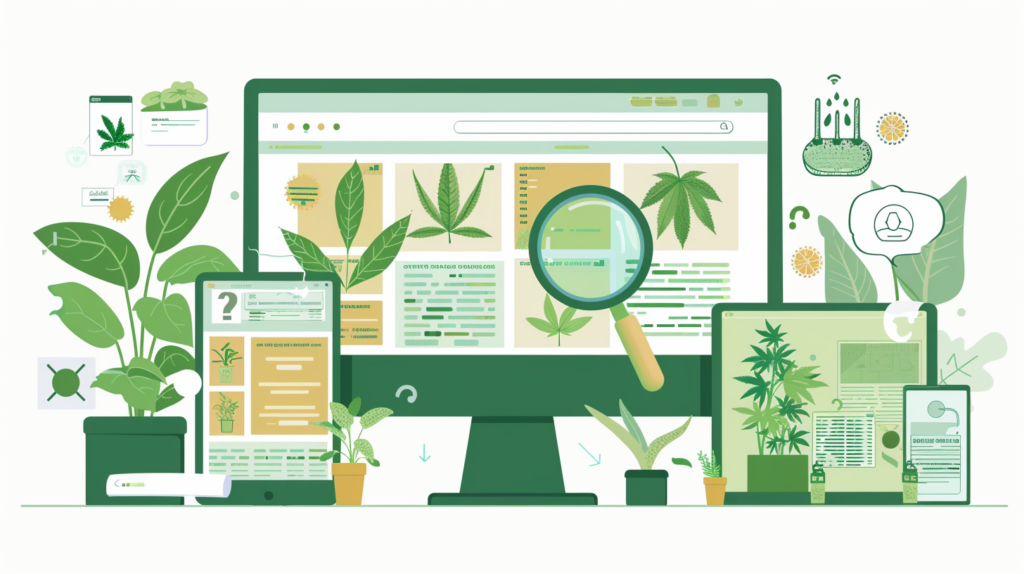
Locating dependable resources for hydroponic seed selection is crucial for growers seeking to optimize their gardens. A wealth of information can be found in specialized hydroponic forums and online communities, where seasoned growers share insights, experiences, and advice. Reputable seed companies and suppliers also provide a treasure trove of information on their websites, including detailed seed profiles, cultivation guides, and system compatibility notes, which are instrumental in choosing the right seeds for specific conditions and setups. Academic and research institutions, along with agricultural extension services, are invaluable for their rigorous research and publications on hydroponic seed selection and growing practices, offering scientifically backed recommendations.
Additionally, engaging with local gardening clubs, attending workshops, or participating in seminars presents a unique opportunity to gain knowledge from experienced hydroponic practitioners and industry professionals through direct interaction. These resources collectively offer comprehensive guidance and support for making informed seed selection decisions in hydroponic cultivation.
Recap of the essential tips for choosing the best seeds for hydroponics
To ensure the best outcomes for your hydroponic garden, selecting the right seeds is key. Here’s a summary of the essential tips: Recognize the distinct differences between seeds for soil-based and hydroponic cultivation, especially regarding nutrient absorption and growth habits. Opt for seeds that are engineered for hydroponics, as they are adapted to soilless conditions and make efficient use of the nutrient solutions. Consider growth rates, specific nutrient requirements, and how well the seeds match your hydroponic system.
Favor seeds that are fast-growing, yield abundantly, and have built-in disease resistance to boost productivity and minimize the likelihood of crop failure and pesticide use. Engage in thorough research, trial various seeds, and seek out reputable sources to inform your seed choices. By adhering to these tips, you can leverage the full capabilities of your hydroponic setup, leading to plentiful harvests of healthy produce and the adoption of sustainable, effective gardening practices.
Encouragement to explore and find the perfect seed varieties for your hydroponic setup
Venture into the quest for the ideal seed varieties for your hydroponic system with enthusiasm and an open mind. Delve into the diversity of options, trial different strains, and learn through the natural process of experimentation. Each cycle of growth and harvest will enrich your understanding, propelling you toward the creation of your optimal hydroponic garden. Seize the chance to gain knowledge, make adjustments, and refine your methods over time. The search for the perfect seed is a continuous journey that promises to reward your dedication with abundant harvests.

